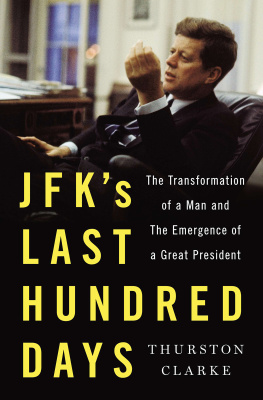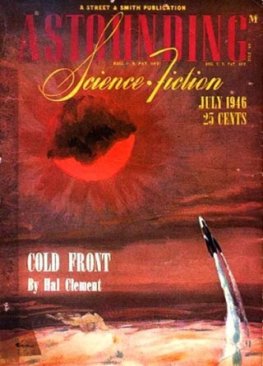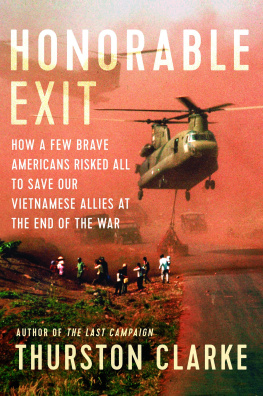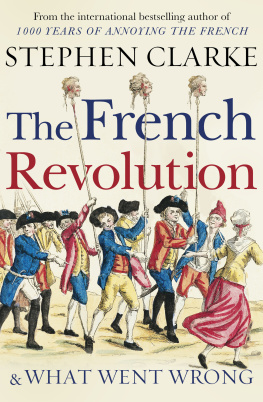Thurston Clarke - By Blood and Fire: July 22, 1946: The Attack On Jerusalems King David Hotel
Here you can read online Thurston Clarke - By Blood and Fire: July 22, 1946: The Attack On Jerusalems King David Hotel full text of the book (entire story) in english for free. Download pdf and epub, get meaning, cover and reviews about this ebook. year: 2016, publisher: Open Road Distribution, genre: Detective and thriller. Description of the work, (preface) as well as reviews are available. Best literature library LitArk.com created for fans of good reading and offers a wide selection of genres:
Romance novel
Science fiction
Adventure
Detective
Science
History
Home and family
Prose
Art
Politics
Computer
Non-fiction
Religion
Business
Children
Humor
Choose a favorite category and find really read worthwhile books. Enjoy immersion in the world of imagination, feel the emotions of the characters or learn something new for yourself, make an fascinating discovery.

- Book:By Blood and Fire: July 22, 1946: The Attack On Jerusalems King David Hotel
- Author:
- Publisher:Open Road Distribution
- Genre:
- Year:2016
- Rating:5 / 5
- Favourites:Add to favourites
- Your mark:
- 100
- 1
- 2
- 3
- 4
- 5
By Blood and Fire: July 22, 1946: The Attack On Jerusalems King David Hotel: summary, description and annotation
We offer to read an annotation, description, summary or preface (depends on what the author of the book "By Blood and Fire: July 22, 1946: The Attack On Jerusalems King David Hotel" wrote himself). If you haven't found the necessary information about the book — write in the comments, we will try to find it.
Thurston Clarke: author's other books
Who wrote By Blood and Fire: July 22, 1946: The Attack On Jerusalems King David Hotel? Find out the surname, the name of the author of the book and a list of all author's works by series.
By Blood and Fire: July 22, 1946: The Attack On Jerusalems King David Hotel — read online for free the complete book (whole text) full work
Below is the text of the book, divided by pages. System saving the place of the last page read, allows you to conveniently read the book "By Blood and Fire: July 22, 1946: The Attack On Jerusalems King David Hotel" online for free, without having to search again every time where you left off. Put a bookmark, and you can go to the page where you finished reading at any time.
Font size:
Interval:
Bookmark:

By Blood and Fire
July 22, 1946: The Attack on Jerusalems King David Hotel
Thurston Clarke
For Antonia
I would like to thank the John Simon Guggenheim Memorial Foundation for its generous support.
T. C.
In Blood and Fire Judea Fell.
In Blood and Fire Judea Will Arise.
The Irgun Zvai Leumi
The Messiah will not come to the sound
of high explosives.
Chaim Weizmann
Contents
Authors Note
This is a true story. Events and conversations have been reconstructed from interviews, official papers, letters, diaries, and firsthand published accounts. Chapter notes follow the text.
PROLOGUE
December 11, 1917
General Sir Edmund Allenby dismounted outside the walls of Jerusalem and strode toward the Jaffa Gate. An honor guard stamped boots and presented arms. They wore tin helmets and carried grenades. Less than a mile away, the retreating Turkish army fought on. Mortar shells exploded in the distance. Flimsy biplanes sputtered overhead.
Two days before, Allenbys army had captured Jerusalem, ending four centuries of Turkish rule. This victory against Germanys ally had cost Britain considerable blood and suffering but strategically and symbolically it was among the most crucial victories of the First World War.
Assyrians, Romans, Arabs and Turks had each in turn celebrated their conquests of Jerusalem with processions and spectacles. Today no Union Jacks waved from the citys ramparts, no bells rang and no bands played to announce Allenbys triumph. Britain wanted to reassure the world that she would be an impartial and benevolent trustee.
At noon Allenby marched through the Jaffa Gate and into the Old City. The commanders of his armys French and Italian contingents flanked him; his principal staff officers followed at twenty paces. Crowds jammed the Old Citys roofs and balconies. Clapping, screaming and sobbing men and women surged against the backs of soldiers lining the sidewalks.
As Allenby passed, priests and monks embraced and crossed themselves. They wore the brown robes of the Franciscan order, the white robes of the Coptic Church and the black cloaks of the Orthodox Church. Arab, Russian, Greek, Ethiopian and European rejoiced together that for the first time since the Crusades a Christian nation ruled Palestine. An American witness said, One of the greatest events in history was enacted here before our eyes. We thought this was the Last Crusade.
Tears of joy streamed down the cheeks of black-coated rabbis in the crowd. During the war, deportation, disease and famine had cut Jerusalems Jewish community by half. Only 25,000 Jews remained, a pitiful remnant of the people who had ruled the city two thousand years before. Now, under the British, they had reason to hope their numbers would soon be swelled.
In 70 A . D ., the Romans had exiled the Jews from Palestine and destroyed Solomons Temple. The remains of this temple, known as the Wailing Wall, became the spiritual center of Judaism, toward which the prayers of millions of Jews in exile were directed when they made the Passover promise of Next year in Jerusalem.
Today that promise seemed close to fulfillment. Zionism, a political movement advocating the return of the Jews to Palestine, had been born in 1895 when a Viennese newspaperman, Theodor Herzl, published a pamphlet entitled Der JudenstaatThe Jewish State. Its first sentence read, The Jews who will it, shall have a state of their own.
A turning point in Zionist history occurred on November 2, 1917, when British Foreign Secretary Arthur Balfour sent a short letter to Lord Rothschild, the head of the British branch of the famed Jewish banking family. Its most crucial paragraph said:
His Majestys Government views with favour the establishment in Palestine of a national home for the Jewish people, and will use their best endeavours to facilitate the achievement of this object, it being clearly understood that nothing shall be done which may prejudice the civil and religious rights of existing non-Jewish communities in Palestine or the rights and political status enjoyed by Jews in any other country.
This extraordinary, contradictory promise was motivated by a number of factors, prominent among which was Britains need to secure the support of Russian and American Jews at a crucial juncture in the First World War. Most of all, however, it was motivated by idealism.
Balfour and Prime Minister David Lloyd George wanted to right centuries of wrongs done to the Jews by European Christians. As reparation, they offered Palestine. They offered it because they had been charmed and their consciences stirred by the Chairman of the British Zionist Federation, Dr. Chaim Weizmann. They offered it because, by the standards of this imperialist age, if you captured territory from an enemy, you did with it as you pleased. In 1917, it pleased Britains rulers to give the Jews a national home in lands they had won from the Turks.
Jerusalems Arabsor, as Balfour would have it, the members of the existing non-Jewish communitieswho cheered Allenby, knew nothing, yet, of Balfours declaration. Allenby had delivered them from years of starvation and misery under the Turks. They clapped their hands and shouted Allah Nebi.
By coincidence, Allenby sounds identical to Allah Nebiin Arabic, a prophet who, by tradition, would enter Jerusalem on foot and make it a city of prosperity and power. Arab prosperity and power, the Arabs assumed. How could it be otherwise? The Arabs made up ninety percent of Palestines population and Jerusalem contained the sacred rock from which Mohammed had ascended to heaven. This rock, now covered by a golden dome, was Islams third most sacred shrine.
In his camp east of the Jordan River, Prince Faisal also celebrated Allenbys victory. In 1915 Sir Henry MacMahon, Britains High Commissioner in Egypt, had written to the Princes father, King Hussein, pledging that if the Arabs rebelled against Turkey, Britain would guarantee their independence. MacMahon excluded from this promise only the western portions of Syria. British diplomats later, and not very convincingly, argued that these western portions included Palestine.
The officers who marched behind Allenby and the soldiers who held back the crowds were also thrilled by their victory. Education in Britain stressed Latin, Greek and the Bible. Biblical history was studied as carefully as that of the Empire. Today the British rejoiced that the worlds holiest city was now part of its greatest empire. A member of Allenbys staff observed, In Jerusalem, one seldom heard an oath or an indecent word, even though bad language from troops in the field is notorious.
According to T. E. Lawrence, who was visiting Allenbys headquarters, the entry into Jerusalem was the supreme moment of the war.
The procession halted in front of the citadel. Allenby climbed an open stairway and, standing on a terrace in front of King Davids Tower, read a proclamation promising that the holy shrines would be maintained and protected according to the existing customs and beliefs of those to whose faith they are sacred. After the proclamation was translated into seven languages, he marched to the Turkish barrack square, received the citys notables and then returned to his headquarters. The entire ceremony had taken fifteen minutes.
They were to be the best fifteen minutes of Britains thirty-year rule in Palestine, the only fifteen minutes when Arab, Briton and Jew celebrated together, and the only moment, until July 22, 1946, when most were united in a single emotion.
The euphoria was brief. Half an hour after the ceremonies, over a luncheon of chicken mayonnaise and foie gras sandwiches, the French attach, Franois Georges-Picot, volunteered to set up a civil government.
Font size:
Interval:
Bookmark:
Similar books «By Blood and Fire: July 22, 1946: The Attack On Jerusalems King David Hotel»
Look at similar books to By Blood and Fire: July 22, 1946: The Attack On Jerusalems King David Hotel. We have selected literature similar in name and meaning in the hope of providing readers with more options to find new, interesting, not yet read works.
Discussion, reviews of the book By Blood and Fire: July 22, 1946: The Attack On Jerusalems King David Hotel and just readers' own opinions. Leave your comments, write what you think about the work, its meaning or the main characters. Specify what exactly you liked and what you didn't like, and why you think so.



